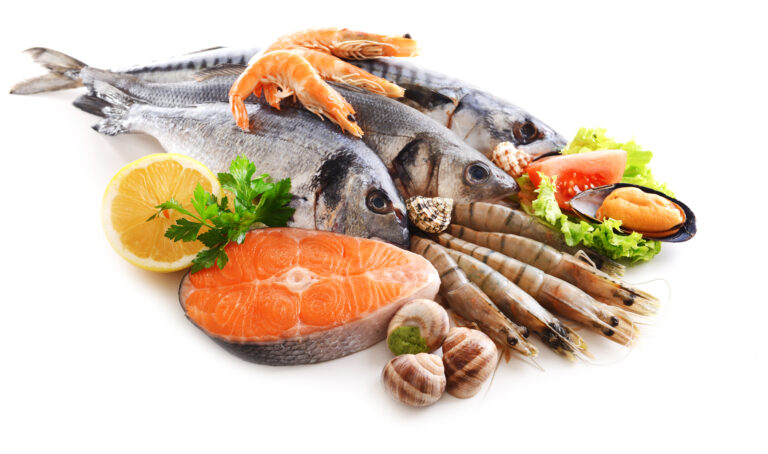Are Seafood Processors Subject to FSMA? The Short Answer: Yes, Some of the Rules
Fish and fishery products are regulated under FDA through the Seafood HACCP regulation (21 CFR part 123) which requires seafood processors to identify food safety hazards that are reasonably likely to occur and to develop plans for the control of those hazards. While several FSMA regulations provide exemptions related to the seafood HACCP regulation, seafood processors are not exempted from all FSMA regulation.
To better address how FSMA impacts processors and importers subject to the seafood HACCP regulation, FDA issued new guidance on Seafood HACCP and FSMA in late December 2021. Based on a thorough review and assessment of the guidance, following are key areas TAG sees as critical for seafood processors to understand related to FSMA applications.
TRAINING. While many of the areas of compliance to FSMA are somewhat gray, the requirement for training and its documentation is black and white. Seafood processors are not required to have a Preventive Controls Qualified Individual, but, as stated in the guidance, workers (including temporary and seasonal personnel) “must have the necessary combination of education, training, and/or experience necessary to manufacture, process, pack, or hold clean and safe food as appropriate to the individual’s assigned duties” and must receive training in the principles of food hygiene and food safety; and supervisory personnel must have the necessary education, training, or experience (or a combination thereof) necessary to supervise the production of clean and safe food.
Additionally, records of the training of all individuals in the principles of food hygiene and food safety, including health and personal hygiene, as appropriate to the food, the facility, and their assigned duties must be maintained (according to subpart F of part 117).
TRANSPORTATION. Seafood processors are also subject to FSMA’s Sanitary Transportation Rule for any operations that are not excluded from the definition of transportation operations in 21 CFR 1.904. As examples, FDA stated that the transportation of seafood that requires temperature control for safety is subject to the regulation, but that of a shelf stable seafood product completely enclosed by a container is not.
HAZARD ANALYSIS. Under FSMA, a processor must conduct a hazard analysis for chemical contamination. Because radiological hazards are a type of chemical hazard, this analysis must be added to the seafood HACCP if that has not already been included. A seafood processor’s HACCP plan must list the necessary critical control points and controls to prevent the radiological hazard associated with the fish or fish they process if that hazard is identified as reasonably likely in the hazard analysis.
CLEANING & SANITATION. Written sanitation standard operating procedures (SSOPs) are not required by the Seafood HACCP Rule, and that continues to stand for seafood processors. However, the rule (and TAG) recommends that processors have SSOPs in writing. Since seafood processors are required to implement and maintain written sanitation monitoring procedures, as well as corrective action records, having written SSOPs are not only simply an extension of this, but better enable the development of the monitoring procedures and any need for corrective action.
It also is important to document sanitation because FDA inspectors will ask about records, particularly if any rule deviations or sanitation issues are observed. FDA has been known to state, “If it is not written, it didn’t happen.” If there is a deviation, or – worse – an incident, the processor will be accountable, and with documentation due diligence cannot be proven.
FOREIGN SUPPLIER VERIFICATION PROGRAM (FSVP). Seafood processors are exempt from the FSVP rule. But because of that, seafood importers should transmit the Affirmation of Compliance code, “FSX” (designating that the food is exempt from the FSVP regulation) for each entry. Without the code, the entry will be rejected.
ACCOUNTABILITY. While fish and fishery products are not held to all the rules of FSMA, as discussed, FDA does have the authority to impose FSMA requirements on a business if it appears that the seafood HACCP is not providing for safe food. FDA also has recall authority to mandate the recall of unsafe product, so whether or not the business “has” to follow FSMA, it is a good idea to implement as much of its food safety aspects as are applicable.
TAG also sees this as a step into the future for seafood processors because, while FSMA’s preventive controls and environmental monitoring and control are not currently mandatory, there are indications that FDA is migrating to that.
Meanwhile, it is vital that seafood processors ensure they are aligned with the FSMA requirements that the guidance has shown they are subject to – particularly that of training. The Seafood HACCP Alliance course is a good way to not only meet the training and documentation requirements, but also ensure that your workers fully understand how to ensure the safety of your products. If your workers or supervisors need this training, give TAG a call. We can provide your business with this training in multiple languages.





